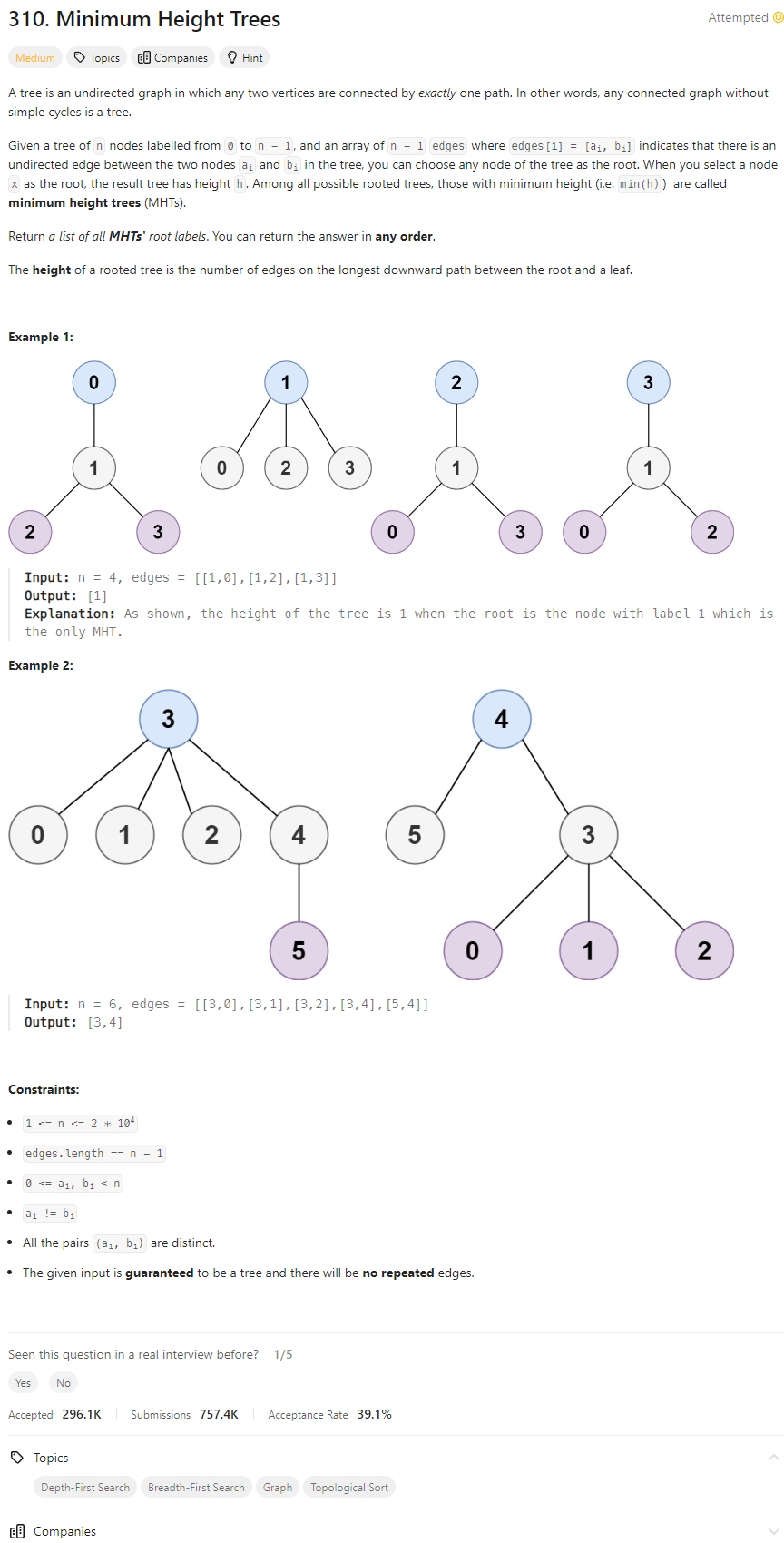Problem of The Day: Minimum Height Trees
Problem Statement

BFS Approach - TLE
class Solution:
def findMinHeightTrees(self, n: int, edges: List[List[int]]) -> List[int]:
graph = {i: [] for i in range(n)}
for x, y in edges:
graph[x].append(y)
graph[y].append(x)
def bfs(node):
queue = deque([[node, 0]])
height = float('-inf')
visited = set()
visited.add(node)
while queue:
curr, level = queue.popleft()
isLeaf = True
for nei in graph[curr]:
if nei not in visited:
queue.append([nei, level + 1])
visited.add(nei)
isLeaf = False
if isLeaf:
height = max(height, level)
return height
heights = []
for i in range(n):
heights.append(bfs(i))
res = []
min_height = min(heights)
for i, height in enumerate(heights):
if height == min_height:
res.append(i)
return res
- Time: O(n^2)
- Space: O(n)
Editorial Solution
Topological Sorting
class Solution:
def findMinHeightTrees(self, n: int, edges: List[List[int]]) -> List[int]:
# edge cases
if n <= 2:
return [i for i in range(n)]
# Build the graph with the adjacency list
neighbors = [set() for i in range(n)]
for start, end in edges:
neighbors[start].add(end)
neighbors[end].add(start)
# Initialize the first layer of leaves
leaves = []
for i in range(n):
if len(neighbors[i]) == 1:
leaves.append(i)
# Trim the leaves until reaching the centroids
remaining_nodes = n
while remaining_nodes > 2:
remaining_nodes -= len(leaves)
new_leaves = []
# remove the current leaves along with the edges
while leaves:
leaf = leaves.pop()
# the only neighbor left for the leaf node
neighbor = neighbors[leaf].pop()
# remove the only edge left
neighbors[neighbor].remove(leaf)
if len(neighbors[neighbor]) == 1:
new_leaves.append(neighbor)
# prepare for the next round
leaves = new_leaves
# The remaining nodes are the centroids of the graph
return leaves
- Time: O(V) where V is the number of nodes in graph
- Space: O(V)